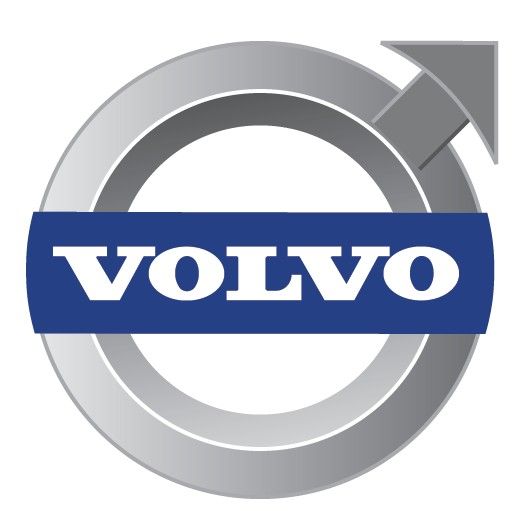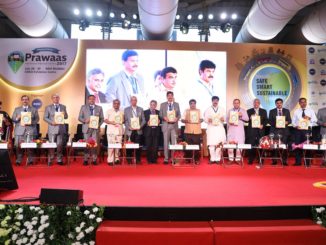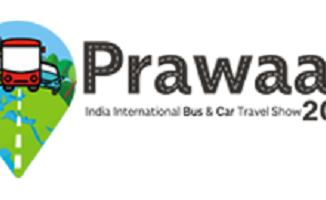To partner with BOCI to help the public transport sector realise its potential.
Volvo Buses is all set to participate in Prawaas 2017, being organised from July 28-30 at Navi Mumbai. The exhibition and conference has been put together by the Bus Operators’ Confederation of India (BOCI), a representative association of private passenger vehicle operators. ‘We heartily welcome the creation of BOCI. Globally, modernisation of the public transport sector is driven by collaboration between empowered private and public sector operators, policy makers, manufacturers and supporting services. Similarly in India, BOCI in association with other stakeholders has the potential to drive the industry’s modernisation through the adoption of globally benchmarked products and best practices,’ stated Akash Passey, Senior Vice President, Business Region International, Volvo Bus Corporation.
The organisers of Prawaas 2017 expect to host more than 10,000 business visitors inclusive of 3,000 bus and taxi operators. More than 100 exhibitors are expected to participate in the event.
Volvo Buses is exhibiting the Volvo Hybrid and the Volvo 9400 coach. These buses reinforce Volvo Buses’ track record of delivering market-defining solutions. The Hybrid remains the first electrified bus to be commercialised in India. Two hybrid buses being piloted with the Navi Mumbai Municipal Transport Corporation since May 2016 have delivered fuel economy and emission benefits to the tune of 35 percent. ‘We believe that hybrid buses are an immediately deployable solution, while necessary conditions are being created for the large-scale adoption of full electric buses. Developed markets have followed a similar approach to the adoption of electro mobility,’ says VRV Sriprasad, Managing Director, Volvo Buses – South Asia.
The Volvo 9400 was among the first BSIV compliant coaches to be delivered to Indian customers. Volvo Buses has delivered close to 1,000 BSIV buses, which includes 100 BSIV coaches that have hit the road since new emission norms came into effect. ‘It makes us especially proud that since April 2017, our 12-metre city buses and coaches are being powered by the ‘Made-in India’ BSIV compliant Volvo D8C engine,’ observed Sriprasad. Manufactured by the Volvo Group JV in Pithampur, the engine delivers peak power of 330HP to ensure optimal balance between performance and fuel-efficiency.
The driveline and powertrain in Volvo 9400 coaches are designed to last for the lifecycle of the bus, which is typically for 10 lakh kilometres. With long service intervals, these key aggregates can contribute significantly to lowering of running costs. Moreover, NVH levels are significantly reduced, which lead to better travel comfort for passengers and lowers driver fatigue, which is essential from a safety standpoint.
The bus scores features many segment-first active safety features like ABS, Electronic Braking System (EBS), Disc Brakes and Hillstart aid.
About Volvo Buses in India
Volvo Buses has been in India since 2001 and has built leading experience when it comes to high-performing bus applications. It has been driving change in the industry introducing various firsts in India – including the true bus chassis concept, low floor city bus concept, multi-axle coaches and hybrid buses among a host of other technologies and concepts. This coupled with its state-of-the-art factory and overall profile of being a complete transport solutions provider, Volvo Buses is closely entwined with progress in the bus industry.
Over 6,000 Volvo buses operate on Indian roads, providing the best travel experience in terms of safety, luxury and comfort to people. Volvo coaches today connect major cities across India, besides in Bangladesh and Sri Lanka. While city buses ply in 35 cities, 4,500 Volvo coaches connect more than 100 locations across the country. Key routes like Mumbai-Pune, Bangalore-Chennai, Bangalore-Hyderabad, Bangalore-Jodhpur, Jaipur-Delhi, Mumbai-Ahmedabad, Hyderabad-Mumbai, to name a few have become synonymous with Volvo services on these roads.



